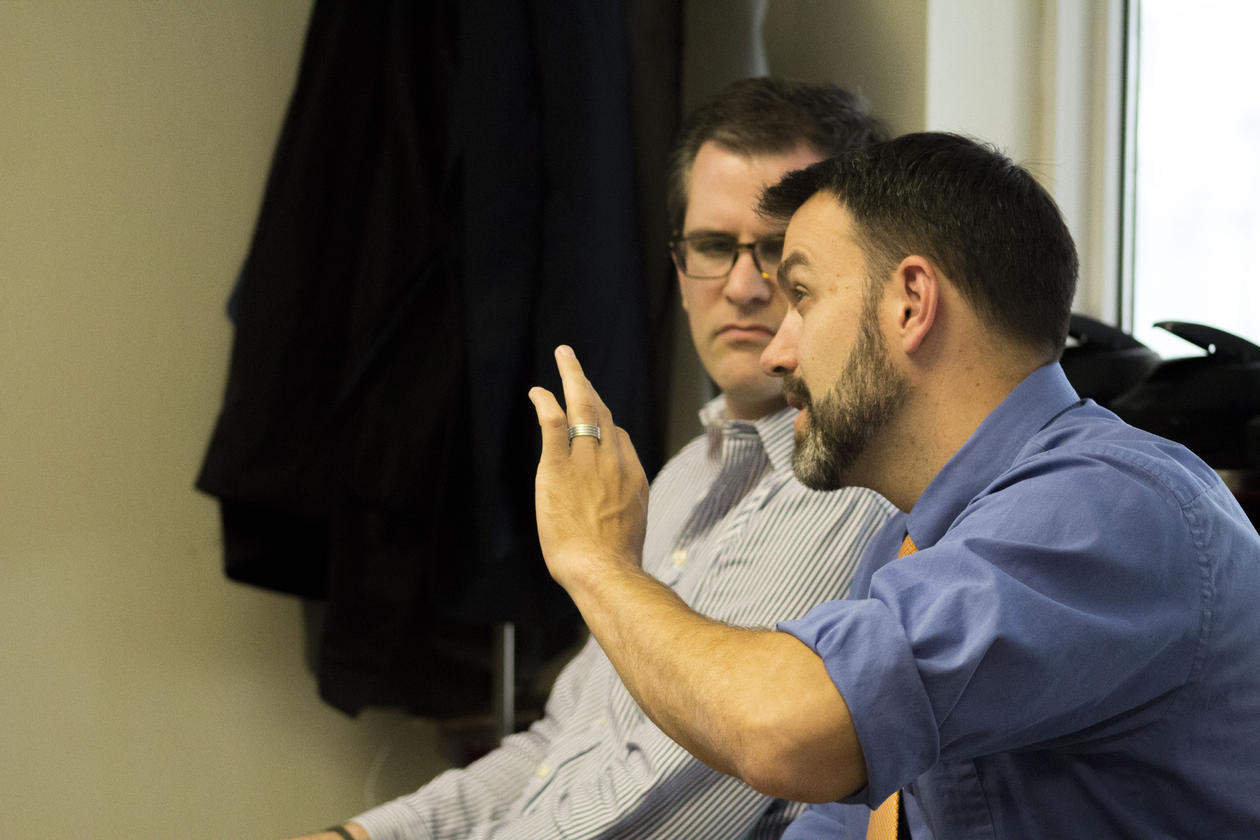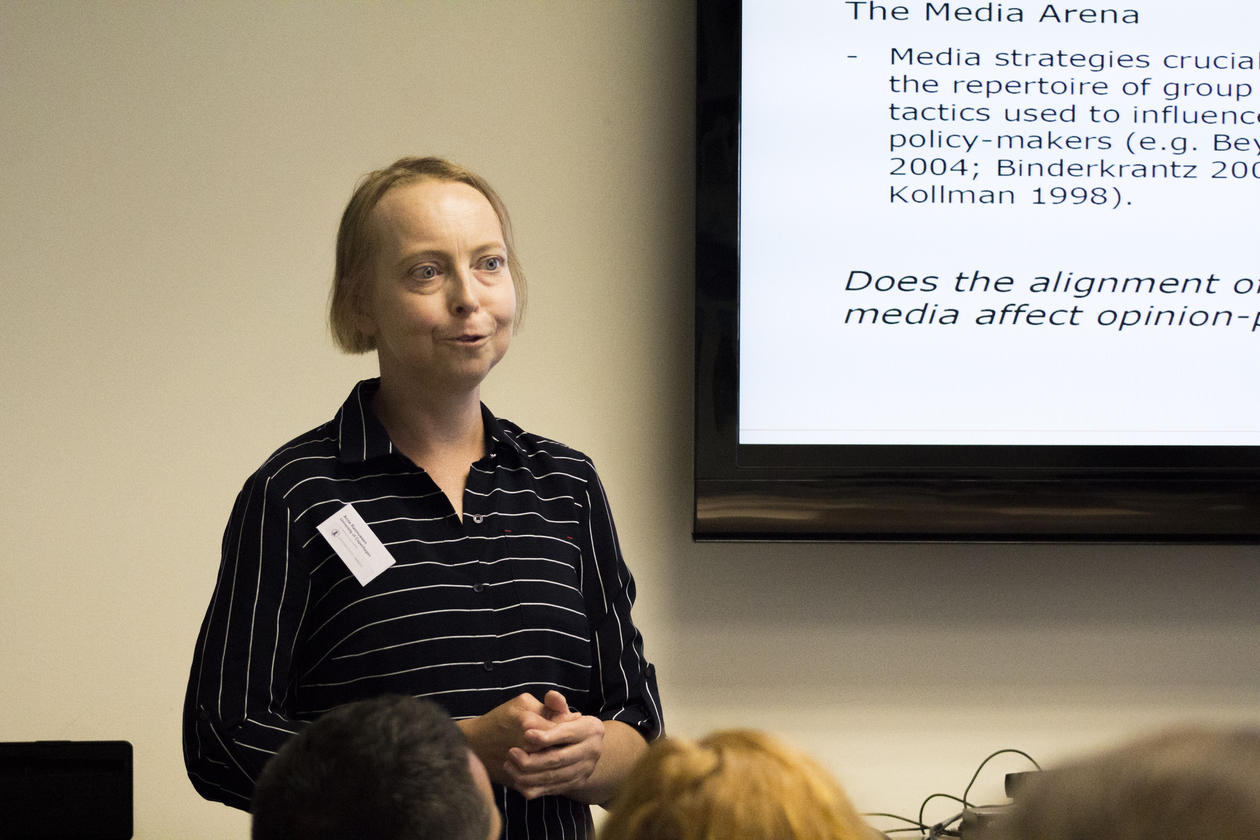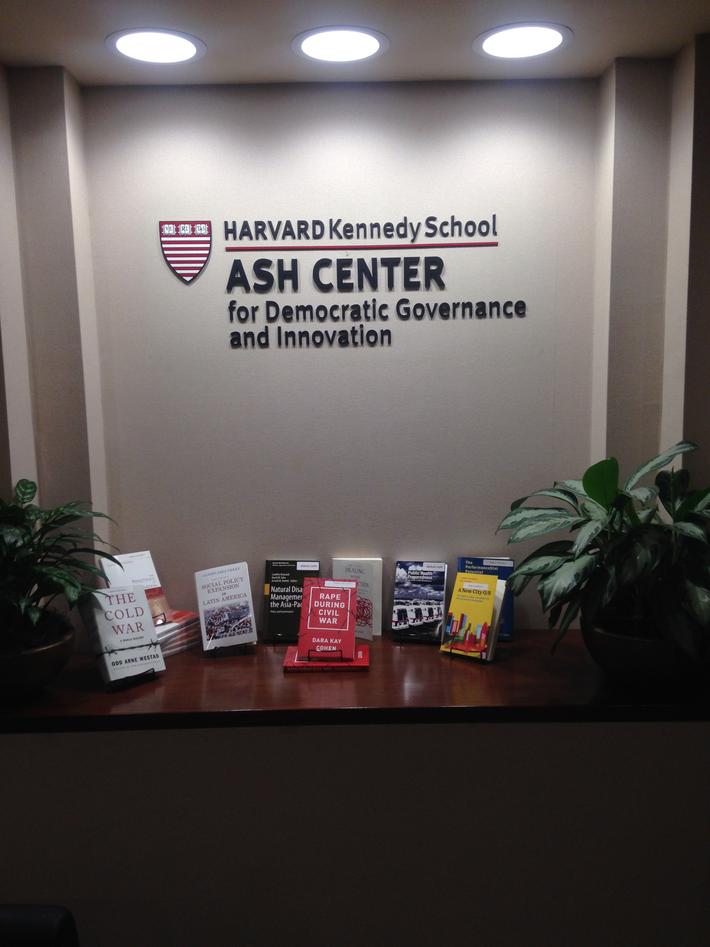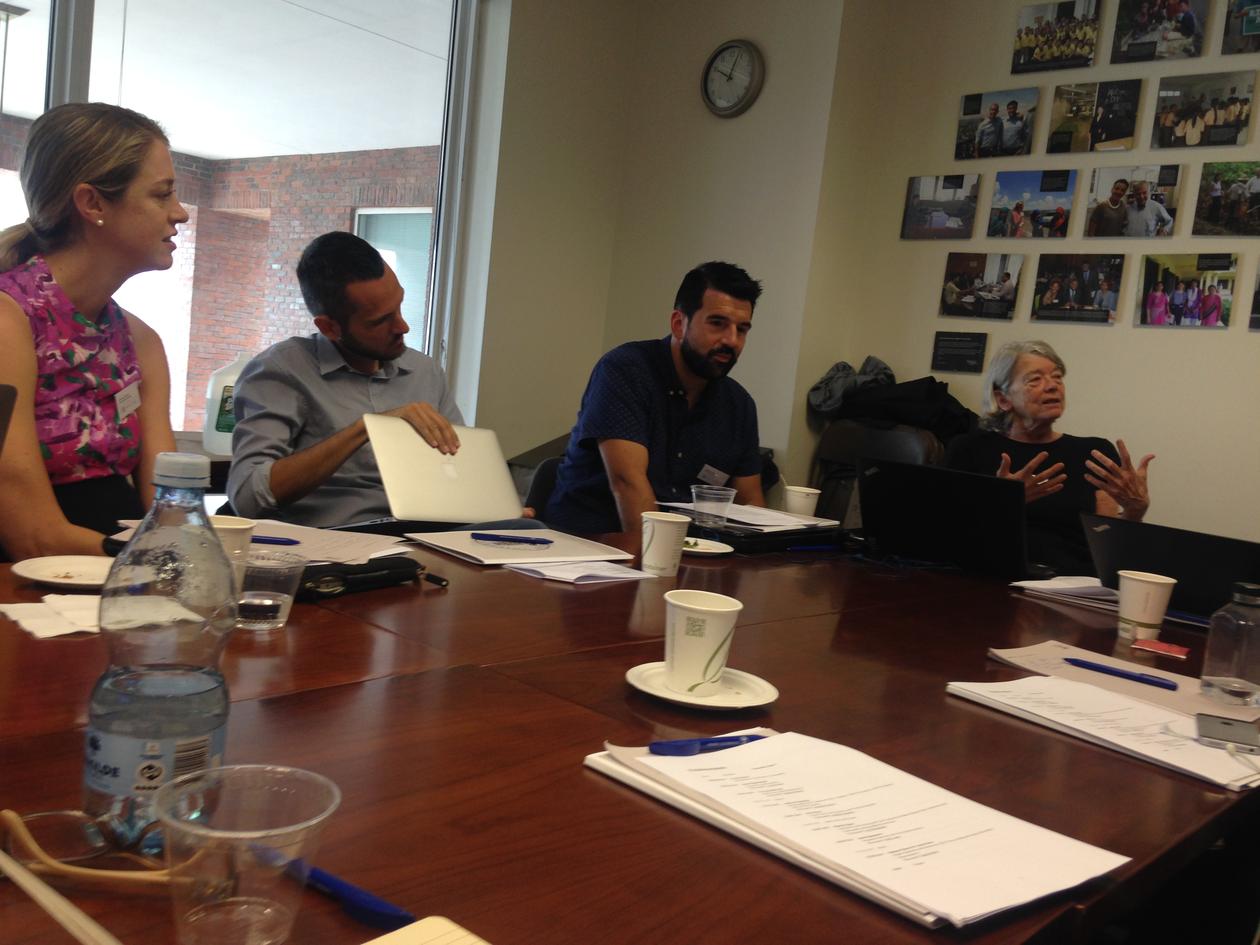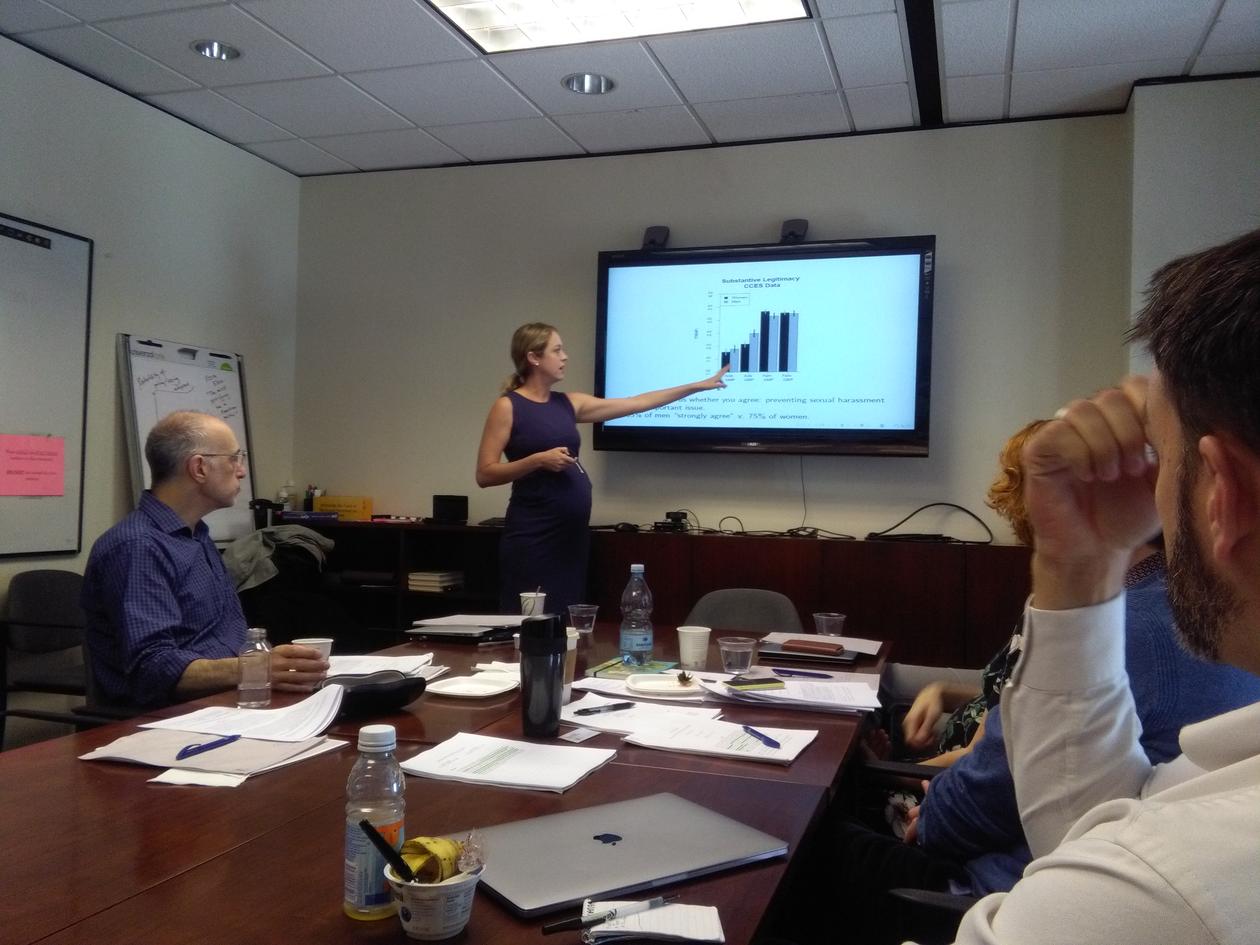Workshop at Harvard University on ‘Political Inequality, and How Representative Democracy Functions’
This summer, the opening workshop of the research project ‘The Politics of Inequality’ was held at Harvard University. During the workshop the first findings of the project were presented, and scholars from 7 different institutions shared their knowledge and expertise.

Hovedinnhold
One of the aims with the project ‘The Politics of Inequality’, which is funded by the Bergen Research Foundation and UiB, is to broaden the academic network related to representation and political inequality, and to connect and interact to expert scholars in the US. It was therefore planned to have the ‘opening workshop’ of the project at Harvard University so that it would be easier to make that connection. It also allowed presenting some of the very first findings from the project. The workshop lasted for one-and-a-half day, and included 12 presentations, and scholars from 7 different high-quality institutions. The program can be found here.
Workshop overview:
Democracy and its defining characteristics have long been a subject of study among social scientists. There is good reason for this: democratic systems bring with them a number of advantages, not least an improvement in overall human wellbeing (Warren, 2002). Indeed, the basic principles of democracy suggest that all or almost all citizens are to be—more or less—equally included in the decisions that govern them. Dahl (1971, 1998) argues that democracy implies that governments are representative of citizens and policies are responsive to them. Moreover, and perhaps more crucial for the concept of democracy even, citizens should be political equals, i.e., they should have equal chances and opportunities to have a say in the decisions that govern them.
Over several decades, political science has made important contributions to our understanding of how democratic representation—the mechanism through which many of our democracies functions—works. Spanning empirical research and political theory, this ever-expanding body of work has critically examined whether contemporary democracies live up to the Dahlian standards of democracy, why this is so, and how the situation could be improved if deemed necessary. Some of these studies have been more optimistic (e.g., policies seem generally to follow the public’s political ‘mood’), while others express more concern (e.g., there are groups in society that are more likely to be responded to than others).
Scholars working in this area have adopted different approaches to studying these questions of representation and political equality. One approach has been to focus mostly on congruence – namely, the match between citizens’ preferences and representatives’ preferences; another has been to focus more on responsiveness by examining how accurately policies or representatives change according to a change in public opinion. Another difference of approach is the focus on policies or other forms of output versus legislators’ attitudes and behavior. Furthermore, some research deals more generally with representation in terms of political ‘mood’ or a super-issue, while other research deals with (multiple) specific issues or policies. Besides these differences in substantive focus, studies also vary in terms of their methodological approach.
This workshop deals with two issues fundamental to the nature and functioning of democracy: representation and political equality. In the past half-century, high-income, established democracies have seen numerous changes relevant to representation and political equality. These include decreasing electoral participation and increasing distrust in political institutions and anti-immigrant (and anti-EU) sentiments. Moreover, international commitments and the recent economic crisis have imposed constraints on governments that affect the kinds of policies they can pursue. Economic inequality has also increased in many established democracies. Against this backdrop, this workshop brings together scholars who aim to analyze two elements vital to democracy: on the one hand, representation (citizen-to-representative congruence/responsiveness; policy congruence/responsiveness; and perhaps even ‘responsibility’); and on the other hand, political equality (equality in representation).
